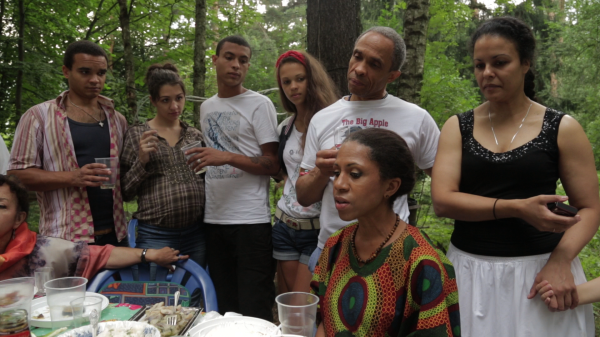As Yelena Khanga, a well-known Moscow journalist, sits amongst her family and friends at a weekend gathering of what they are referring to as “our Afro-American Clan,” her relatives, drinks in hand, are preparing a toast. Amongst those present are Wayland Rudd Jr. another descendent of Afro-American immigrants who left their homeland in the United States searching for a place where they would not be judged by the color of their skin. Around this picnic table at the city limits, the children and grandchildren of the immigrants reflect upon their collective history from the privilege of historical afterthought.
It is unnecessary for them to verbalize their perceptions on the naïveté of their ancestor’s pursuit of a dream for a better life. As decedents it is not difficult for them to see their lives as the product of one moment in time, a moment of immeasurable promise, a moment where their ancestors chose to follow that dream; a utopian dream of a color-blind society with universal education and medicine, where a person can reap the total fruits of their labor.
Of course this is not the Russia of today, or by that matter, the United States. But standing before his family, Wayland Rudd Jr., a well-known Moscow performer confesses that despite what he had endured in his birthplace or Russia, “bad or good,” he says, “I’m happy.” Seated to his left, Yelena listens, looking off at no one in particular. “The story is much more complicated than we can imagine it,” Yelena says. Indeed, she may envision her ancestors as pioneers, as cogs in the spinning annals of the 20th century, and although there is the temptation to lament the course history has taken, nonetheless, she owes all that she is, and all that she has accomplished to them. She thinks of her grandfather Oliver Golden. Born in Mississippi to ex-slaves, he and his wife, Bertha Bialek an American with Polish Jewish roots, left New York for the Soviet Union.
“Our families left their country because they knew they couldn’t live there. They couldn’t give to their children an education, the same that they could give to them in Russia, and they were right in that sense. No matter how much we complain about life, we can’t compare it to what our families had to deal with, and what they ran away from.”

